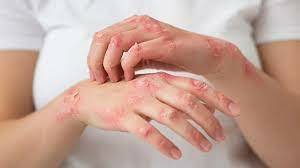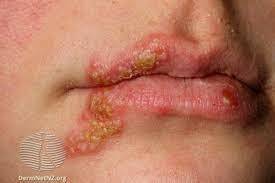Oral or genital herpes infections can have a serious negative effect on a person's quality of life. The herpes simplex virus (HSV) is the source of many viral infections, which can cause uncomfortable blisters, discomfort, and psychological distress. Nonetheless, people can successfully overcome the difficulties presented by vaginal and oral herpes infections with the right management techniques. This article examines the many approaches, including preventative measures and treatment choices, to managing these illnesses.
Understanding Oral and Genital Herpes Infections:
The herpes simplex viruses type 1 (HSV-1) and type 2 (HSV-2) are the viruses that cause herpes infections. Oral herpes is usually caused by HSV-1 and is characterised by fever blisters or cold sores around the mouth; genital herpes is caused by HSV-2 and is characterised by sores or blisters in the vaginal area. Both kinds of herpes infections are extremely contagious and can be spread by kissing, having intercourse, or sharing personal goods like towels or utensils with an infected individual.

Prevention Strategies:
It is imperative that those infected with the virus and their partners take steps to prevent the spread of their diseases. Here are a few crucial preventative techniques:
Safe Sexual Behaviour: Genital herpes can be prevented from spreading during sexual activity by using condoms or dental dams.
Avoiding Close Contact: In order to stop the virus from spreading, people with active herpes sores should keep their distance from other people.
Good Hygiene Practices: Regular hand washing with soap and water and other good hygiene practices will help stop the spread of oral herpes.
Transparency and Interaction: Informed decision-making and risk-reduction techniques are made possible by open discussion about a person's herpes status with sexual partners.
Treatment Options:
Herpes infections cannot be cured; however, there are a number of treatments that can help control symptoms and lessen the frequency and intensity of outbreaks. Among them are:
Antiviral Drugs: During outbreaks, doctors frequently give oral antiviral drugs, including famciclovir, valacyclovir, and acyclovir, to reduce viral replication and treat associated symptoms.
Topical Treatments: Antiviral medications like penciclovir or docosanol, which are available over-the-counter, can help lessen pain and accelerate the healing of oral herpes lesions.
Pain Relief: Ibuprofen or acetaminophen, two over-the-counter pain medicines, can help reduce the discomfort brought on by herpes lesions.
Lifestyle Adjustments: Reducing the frequency of herpes breakouts can be achieved by implementing healthy lifestyle habits, including stress management, getting enough sleep, and eating a balanced diet.
Managing Emotional Impact:
People who have herpes infections may have intense emotional effects, such as worry, embarrassment, and stigma. Counsellors, support groups, and healthcare experts can offer coping mechanisms, emotional validation, and assurance.

Want to efficiently treat herpes infections in your mouth and genitalia? Buy Valtrex, a well-respected drug for both treatment and prevention. Valtrex gives patients dealing with herpes infections peace of mind by reducing symptoms and preventing outbreaks thanks to its well-proven antiviral qualities.
Treatment choices, preventative techniques, and emotional support must all be included in the management of oral and genital herpes infections. People can effectively negotiate the hurdles presented by these viral infections by practicing safe sexual practices, receiving medical attention promptly, and addressing the emotional impact of herpes infections. We encourage you to participate in the discussion in the comments section below if you have any more advice or experience managing herpes infections.
